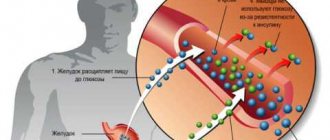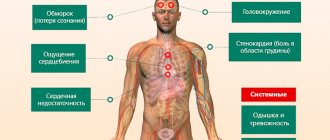Schizophrenia is a mental illness that in Russia is usually mentioned in a dismissive tone, at the level of name-calling. However, in the near future, thanks to innovative drugs, schizophrenia may become well controlled, and people suffering from it may become full-fledged members of society. Are those around you ready for this? The All-Russian Center for the Study of Public Opinion found out how well our compatriots are aware of this disease and how they treat patients with schizophrenia in society.
According to VTsIOM, 90% of Russians are aware of the mental disorder schizophrenia, with 20% claiming to be well aware of its symptoms. This is not surprising considering that 4% have relatives with this disorder, and another 16% know people with schizophrenia personally or know about such a diagnosis in someone they know.
Among the problems faced by patients with schizophrenia were difficulties with employment (40%), as well as with medication provision (33%). Moreover, almost half (45%) of those who have relatives with schizophrenia say that the biggest difficulty is getting the necessary medications.
Negativity from society (34%) was also cited as one of the problems that makes life difficult for people with this disorder. It is not surprising that 38% of relatives or acquaintances of a person with obvious signs of schizophrenia fear that if they seek psychiatric help, their acquaintances will find out about the disease.
Which of the popular beliefs about schizophrenia is true and which are myths? We collected the most striking answers from respondents during the VTsIOM survey and commented on them.
Patients with schizophrenia are unable to control their illness - 63% of respondents
It all depends on the stage of the disease and the personality of the patient. Schizophrenia develops in several stages. In the so-called prodromal period, a person just begins to suspect that something is wrong with him, but usually hides it from others. At this stage, problems with memory and concentration may appear, the person usually loses interest in favorite activities, experiences vivid emotions less and less, tries to avoid society, and often becomes depressed.
If you consult a doctor during this period and receive modern treatment, you can achieve long-term or lifelong remission. However, the patient himself usually does not have enough life experience for this (the first symptoms of schizophrenia usually appear at the age of 15–25), and relatives attribute the changes occurring to him to adolescence.
As a rule, an exacerbation, or psychotic state, is the next stage in the development of schizophrenia that forces you to seek medical help. The patient may hear voices, experience hallucinations, and usually lose control of his condition.
“The problem of most patients suffering from schizophrenia is that they do not realize that they are sick,” says Petr Morozov, MD, Professor of the Department of Psychiatry, Faculty of Additional Professional Education, Russian National Research Medical University. N.I. Pirogov. “They don’t understand that their disease is a huge burden both for themselves and for their relatives and society as a whole. A burden that can be reduced through drug therapy.
Maintaining daily routine and diet
Long-term treatment of schizophrenia at home is possible only if you follow the medication prescriptions of your doctor and certain conditions of your daily routine. Official medicine specialists and traditional healers recommend:
- Constantly ventilate the room in which the patient is located, and you should sleep with the window open, regardless of weather conditions - this contributes to a greater supply of oxygen to the body.
- Take walks every day, and be sure to wear a hat in hot weather.
- Ensure maximum limitation of negative emotions. This also applies to books, films, music, and communication with unpleasant people.
- Avoid wearing synthetic fabrics; it is better to choose clothes from natural materials. This restriction is associated with possible irritation of the skin, itching and burning - this can provoke irritation and an attack of hysteria or aggression.
Treatment of schizophrenia at home also includes regular physical exercise. It doesn’t have to be a professional sport - even the simplest morning jog will help get rid of hallucinations (if they are mild), fear and anxiety. Water procedures, such as dousing with cold water or a contrast shower, also help to prolong the period of remission very well. In general, it is recommended to establish a certain daily routine and strictly adhere to it. For example, this option would be great:
- 5-7 a.m. – getting up, exercises, water procedures (contrast shower or douche, hygiene procedures), personal/social affairs;
- 12-14 hours – lunch, completing current affairs;
- 17-18 – dinner, personal time;
- 21-00 – water procedures;
- 23-00 – maximum time for night rest.
At first, it will be quite difficult for the patient to adhere to such a strict routine, especially if the symptoms of schizophrenia appeared in adulthood. But over time, this mode will become habitual and its implementation will occur automatically, without any reminders.
Please note: the indicated daily regimen is very approximate and needs to be adjusted for each patient. For example, if you need to supplement it with another meal, you can make an afternoon snack or second breakfast. It is important to go to bed at the same time every night, and not vary depending on the desire to watch the next movie, finish reading a book, or finish work.
Signs of schizophrenia, according to respondents, are split personality (27%), hallucinations (17%)
Partly true. With this mental illness, a person’s thinking and perception are impaired. Symptoms of schizophrenia fall into three main categories. Positive symptoms (causing new states that are not characteristic of the normal psyche) are hallucinations, delusions, mental and motor disorders. With negative symptoms, the patient, on the contrary, loses any abilities - this could be loss of motivation, apathy, poor speech, asociality. There are also symptoms associated with cognitive functions - disorders of thinking, perception, memory and attention.
“Medicines for schizophrenia - neuroleptics, or antipsychotics, which were used until recently, acted only on positive symptoms,” says Professor Morozov. — For a long time, we did not have drugs in our arsenal that would help cope with negative symptoms, which occur in 60% of patients and lead to desocialization of patients. A new drug, developed and recently introduced in Russia, can simultaneously relieve both symptoms and causes significantly fewer side effects. We expect that it will fundamentally change existing approaches to the treatment of schizophrenia and help return people who live with this diagnosis to society.
Traditional medicine methods
The use of various traditional medicine recipes allows you to relieve many unpleasant symptoms of the disease. Their use greatly facilitates the patient’s life and does not harm the body. Let's take a look at the most popular recipes and indications for their use:
- Reduced anxiety. In order to reduce anxiety, an infusion based on valerian is used. To prepare the infusion, mix one glass of vodka with two tablespoons of crushed roots of the medicinal plant. The liquid should be infused for two weeks. Take the medicine five drops three times a day.
- Elimination of hallucinations. To prepare the medicine you will need one dessert spoon of comfrey mixed with a liter of cold water. The mixed solution should be boiled over low heat and then allowed to cool. Before drinking the decoction, the liquid should be filtered thoroughly. The average duration of treatment is about ten days. Between courses of treatment a break of two weeks is required.
- Preventing hysteria and eliminating the feeling of suffocation. To prepare the medicine you will need crushed viburnum bark. To prepare two hundred milliliters of medicine, pour one tablespoon of the ingredient with a full glass of hot water. The liquid should be infused for at least half an hour. The solution should be taken three times a day, three dessert spoons.
People with schizophrenia should stay away from the majority - 38%
Harmful misconception. A person with schizophrenia can be dangerous to society only in a state of exacerbation, or psychosis. At the same time, he rarely shows cruelty: for every 100 cases of antisocial behavior in “ordinary” people, there is only 1 in a schizophrenic. More often, behavior in a psychotic state will be simply inadequate - from delusions and hallucinations to complete withdrawal. Psychosis in patients with schizophrenia does not occur very often: once a year in 3.3 people out of 1000 and once throughout life in 7.2 people out of 1000.
Nevertheless, 26% of the Russians surveyed view carriers of this diagnosis with fear, and 18% of Russians surveyed with distrust. The situation is no better in tolerant American society - up to a third of Americans with schizophrenia are considered prone to cruelty.
Integrating people with personality disorders into society, on the contrary, helps them maintain their quality of life and not “slide” into the social “lower classes”, where the likelihood of committing a crime is much greater. Here is how Kirill Rodin, director for work with government bodies at VTsIOM, comments on the problem:
“Unfortunately, schizophrenia is still a mark that makes a person an outcast for a significant part of society. Consequences: the family or patient is left alone with the problem and receives virtually no help from society. This leads to antisocial manifestations - and to even greater stigmatization of the disease. To break this circle, it is necessary to raise public awareness and provide assistance to loved ones and relatives of patients.
About the possibility of treatment
Is there a cure for schizophrenia? An improvement in the condition is quite possible, but for this to happen there must be understanding on the part of the relatives of the schizophrenic - even after the exacerbation seems to have passed, the patient remains:
- feeling of anxiety;
- suspicion;
- feeling of fear.
If relatives do not understand this and make any demands on the patient, they only contribute to the worsening of the situation.
It is better for the doctor to explain to everyone who lives next to the schizophrenic the nature of these manifestations and tell them how to treat all this. Proper medication support will help the patient learn to overcome his stress and live in peace with those around him.
Social rehabilitation is another necessary measure. What is needed, in particular, is physical work (of course, not difficult) and self-care.
Features of the course of the disease in men
Despite the fact that the symptoms of this disease in men and women may be similar and even the same, there are also purely male manifestations of schizophrenia.
For example, men are more prone to delusions of jealousy and its most aggressive form. For a sick man, the behavior of his partner does not matter - he will again and again find “irrefutable” evidence of infidelity. Often this painful search leads to physical violence, since the schizophrenic is practically unable to restrain acute attacks of aggression.
Males are also characterized by a more severe course of the disease, the development of complications, rapid disability and total destruction of personality. This point is aggravated by the widespread addiction of men to alcohol. Many young people consider it completely normal to drink several liters of beer or alcoholic cocktails per week, which increases the risk of developing schizophrenia before the age of 30.
Another sign of schizophrenia, characteristic of the stronger sex, is the continuity of development of the disease. Of course, this does not always happen, and men also often experience paroxysmal progression of the disease. But still, men more often suffer from continuous and recurrent (periodic, without obvious deterioration with each attack) form of the disease.
Representatives of the stronger sex are more likely to lose their jobs and adapt to society. This may be due to the fact that the attitude of others towards a schizophrenic man is always a little more biased - colleagues and friends may gradually suspect the patient of possible attacks of aggression, inappropriate behavior, and possible social danger. In addition, women are more easily forgiven for incontinence, mood swings, hysterics and other strong emotional manifestations, which also occur in schizophrenia.
Symptoms of “male” schizophrenia
The first signs of schizophrenia in men are not always easy to recognize and diagnose. This is due to the fact that the initial symptoms of the disease usually concern the emotional sphere - there may be a depletion of emotions, facial expressions, loss of contact with other people, “withdrawal” (autism), avoidance of people and usual activities.
At the same time, men themselves are often low-emotional; they are not characterized by vivid expressions of feelings. And the reluctance to communicate with people can always be attributed to workload, fatigue and similar purely male difficulties.
Therefore, the first symptoms of schizophrenia in men rarely alarm loved ones and are perceived as a kind of “difficult period.” Latent schizophrenia becomes apparent only when unambiguous signs of mental illness appear. These include:
- Hallucinations, delusions.
- Splitting of feelings (for example, feeling attraction and hatred at the same time).
- Sudden change of mood.
- Sleep disorders.
- Attacks of aggression, anger, desire to harm yourself or others.
- Catatonic symptoms (freezing in one position for a long time).
- Unmotivated fears and phobias.
- Lack of interest in one's appearance, clothing, personal hygiene.
- Incoherent speech, lack of logic in thoughts and actions.
These are the most striking and noticeable signs of schizophrenia in men, although in fact much more is known about the manifestations of the disease in psychiatry.
By the way, with schizophrenia, the symptoms and signs in men and women can be exactly the same. The severity of the disease does not always depend on gender; rather, the development of the disease can be influenced by hereditary factors, the patient’s health status and his living conditions.











